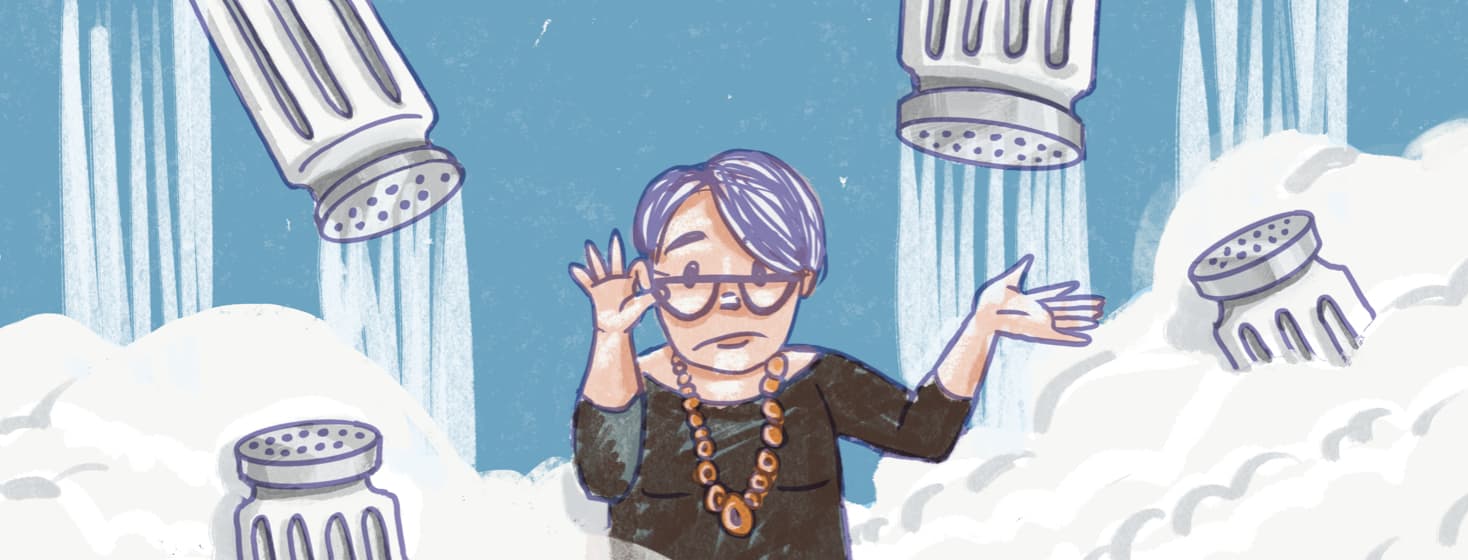Sodium Restriction: Get the Facts
Have you ever been told to go on a sodium-restricted diet? If you’ve ever been hospitalized for heart-related issues, then your answer is probably yes. If that’s the case, then you were probably given tasteless food (as if hospital food is good anyway, right?). You may have even wondered if your food will have to taste like this FOREVER. If you’re a foodie like me, having a sodium-restricted diet may seem like a death sentence because of salt’s ability to enhance flavors. That's because we instantly think of salt when we hear the word sodium. Sure, there are salt alternatives, but is sodium really that bad?
The nutritional side of sodium
First and foremost, sodium and salt are not the same things. Sodium itself is a mineral. It is also a chemical element found in salt. However, sodium is found in other ingredients like baking soda.1
Second, your body needs a small amount of sodium to work properly, but too much sodium is bad for your health. The minimum amount needed by the body is 500 milligrams (mg), which is less than ¼ teaspoon. However, the recommended amount for most adults is 1,500 mg or ¼ teaspoon, but not more than 2,300 mg or about 1 teaspoon. 2,3
Unfortunately, most Americans eat more than 3,400 mg, with about 70 percent of it coming from processed and restaurant foods – not table salt.1-3
Sodium in different types of salts
Sodium is found in a lot of foods and drinks. For people with heart disease, doctors recommend sodium restriction because it helps control symptoms of heart failure (HF) and prevents other heart problems. Therefore, some people try to reduce their sodium intake by how much table salt they use or by changing to another salt like sea salt or kosher salt. 4
Interestingly, more than 60 percent of people in one study believed sea salt was a lower-sodium alternative. That's wrong! If you have high blood pressure or HF and are on a sodium-restricted diet, changing the type of salt doesn’t matter. All types of salt contain about the same amount of sodium. 4-6
Sodium intake and heart failure
Too much sodium can increase your blood pressure and risk for heart disease and stroke. Conversely, restricting sodium intake helps reduce fluid buildup in your heart, lungs, and legs. This fluid buildup can make your heart work harder and increase your blood pressure. 1,2,4
Interestingly, the actual benefits of reducing sodium intake may depend on what type of HF you have. People at risk for HF or who have HF but no symptoms benefit from sodium restrictions. However, some symptomatic, chronic HF patients who consumed less than 2,500 mg/day had an increased risk of death or HF-related hospitalization.7,8
Additionally, more information is needed to see if changing one’s eating habits too fast matters. Therefore, what is considered “a safe amount” of sodium for people with HF, especially in those with more severe HF, remains unclear.
The balancing act
Everything in moderation seems cliché, but it is true. If you have lived with HF long enough, you know that when it comes to diet, deciding what to eat and when is a balancing act. When it comes to balancing sodium, potassium is key because it can lower blood pressure. Eating enough potassium can help balance the harmful effects of sodium on blood pressure. However, since HF medicines can either lower or raise potassium levels, sodium restriction is more important in this balancing act. 2,9,10,11Do you have a heart failure story? Click the button below to share with our community!

Join the conversation